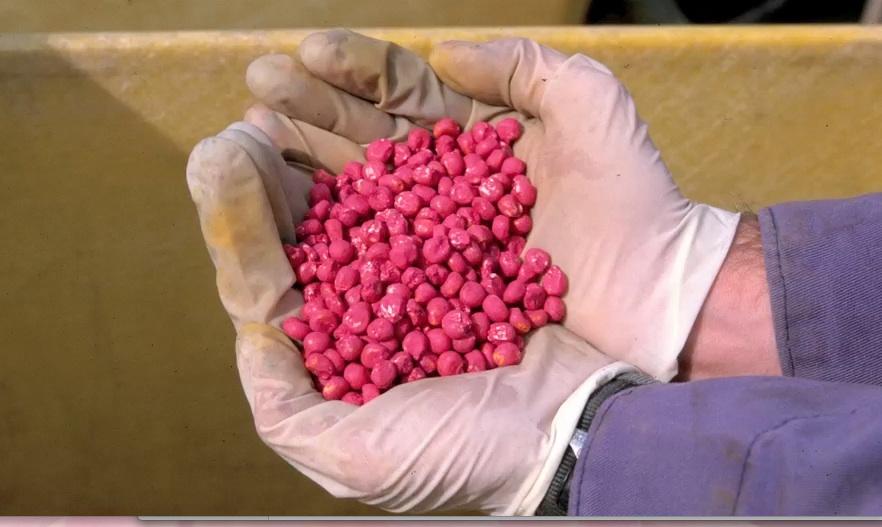Harnessing Nature: Exploring the Expansion of the Global Microbial Seed Treatment Market to USD 3,869.2 Million by 2034

In 2022, the global microbial seed treatment market achieved sales of USD 988.3 million. The industry saw a 9.8% year-on-year growth in 2023 and is expected to reach USD 1,191.5 million in revenue by 2024. From 2024 to 2034, the market is projected to grow at a compound annual growth rate (CAGR) of 12.5%, reaching an estimated USD 3,869.2 million by the end of 2034.
Sales in the sector have surged in recent years, fueled by growing consumer demand for natural pesticides and organic farming, as well as advancements in technology. The creation of crop-specific treatments offers a substantial opportunity to target niche markets and drive further growth.
Gain Strategic Insights into Industry Trends of Microbial Seed Treatment Market Request Your Sample Report
Manufacturers should focus on developing tailored solutions to meet the unique needs of farmers. Partnering with leading agricultural companies can expedite product innovation and enhance industry penetration, often aiding in the establishment of distribution channels and expanding customer bases.
Government support for precision farming and microbial seed treatment is increasing as the benefits of these methods are recognized. This support includes providing incentives and subsidies for farmers, as well as implementing certification and labeling programs for bio-fertilizers and bio-pesticides.
Competitive Landscape
The industry features a dynamic and diverse competitive landscape. Leading manufacturers are heavily investing in research and development to create advanced versions of existing products. These companies are focusing on developing solutions tailored to various soil types and a wide range of plant diseases.
Brands are devising strategies to maintain and expand their market share by prioritizing product quality, expanding production facilities, and providing products that are easy to apply. Producers need to innovate to enhance the usability of their products, thereby supporting biocontrol and improving soil health.
For instance
- In 2024, Helena Agri is elaborating its seed treatment options to cater to soybean growers with the introduction of Enertia and Seed Shield Select. This multi-fungicide formulation protects a variety of soybean seedlings' diseases.
- Indigo Agriculture is leading towards the expansion of its biological seed treatment capabilities with the registration of the industry's first bio-fungicide based on the microbe Kosakonia cowanii. This US EPA-approved intrinsic product suppresses multiple plant diseases.
- Syngenta Seedcare has started propelling its focus on strengthening biologicals and extending leadership in seed treatment with the opening of a service center at the Seedcare Institute in Germany.
- Lotus Agriculture announced the introduction of six new biological treatments for its Duo line. It includes three in-furrow biologicals for cotton, corn, and legumes, along with three seed treatments for wheat, soybean, corn, and cereals.
Leading Microbial Seed Treatment Brands
- Bayer AG
- Koppert
- Indigo Ag, Inc.
- Microbial Solutions
- Certis USA L.L.C.
- BioConsortia
- VensoGrow
- Heliae Development, LLC
- Syngenta Group
- Corteva
- Valent Biosciences
- Others
Gain Exclusive Access to Growth Strategies in Microbial Seed Treatment Market Grab Your Essential ReportTop of Form
Key Segments of the Report
By Treatment:
As per treatment, the industry has been categorized into Fungicides, Insecticides, and Non-chemical Treatments.
By Crop Type:
This segment is further categorized into Oilseeds, Cereals, Fruits & Vegetables, and Pulses.
By Region:
Industry analysis has been carried out in key countries of North America, Latin America, Europe, East Asia, South Asia, Oceania, and the Middle East & AfricaBottom of Form
- Art
- Causes
- Crafts
- Dance
- Drinks
- Film
- Fitness
- Food
- Games
- Gardening
- Health
- Home
- Literature
- Music
- Networking
- Other
- Party
- Religion
- Shopping
- Sports
- Theater
- Wellness


